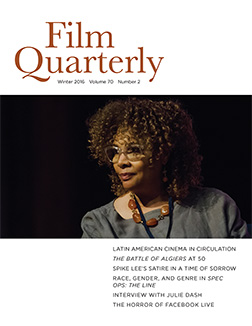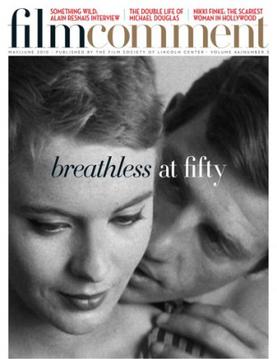
Cahiers du Cinéma is a French film magazine co-founded in 1951 by André Bazin, Jacques Doniol-Valcroze, and Joseph-Marie Lo Duca. It developed from the earlier magazine Revue du Cinéma involving members of two Paris film clubs—Objectif 49 and Ciné-Club du Quartier Latin.
Tertangala is the student magazine of the University of Wollongong. It is published by Wollongong Undergraduate Students' Association, and Tertangala is older than the university itself.
A trade association, also known as an industry trade group, business association, sector association or industry body, is an organization founded and funded by businesses that operate in a specific industry. Through collaboration between companies within a sector, a trade association participates in public relations activities such as advertising, education, publishing and, especially, lobbying and political action. Associations may offer other services, such as producing conferences, setting industry standards, holding networking or charitable events, or offering classes or educational materials. Many associations are non-profit organizations governed by bylaws and directed by officers who are also members.. Many associations are non-profit organizations governed by bylaws and directed by officers who are also members..

Fangoria is an internationally distributed American horror film fan magazine, in publication since 1979. It is published four times a year by Fangoria Publishing, LLC and is edited by Phil Nobile Jr.

The Body Politic was a Canadian monthly magazine, which was published from 1971 to 1987. It was one of Canada's first significant gay publications, and played a prominent role in the development of the LGBT community in Canada.
Sunila Abeysekera was a Sri Lankan human rights campaigner. She worked on women's rights in Sri Lanka and in the South Asia region for decades as an activist and scholar. Quitting a career as a singer, Abeysekera briefly joined the Janatha Vimukthi Peramuna and then founded the Women and Media Collective in 1984. As head of the INFORM Human Rights Documentation Centre, she monitored human rights violations by all parties in the civil war. She received the United Nations Human Rights Award in 1999 and the Didi Nirmala Deshpande South Asian Peace and Justice Award in 2013.

Film Quarterly (FQ), published by University of California Press, is a journal devoted to the study of film, television, and visual media. When FQ was launched in 1945, it was considered "the first serious film journal in the United States, with those most interested in the subject at the helm."

Robert Paul "Robin" Wood was an English film critic and educator who lived in Canada for much of his life. He wrote books on the works of Alfred Hitchcock, Howard Hawks, Satyajit Ray, Ingmar Bergman, Michelangelo Antonioni, and Arthur Penn. Wood was a longtime member—and co-founder, along with other colleagues at Toronto's York University—of the editorial collective which publishes CineACTION!, a film theory magazine. Wood was also York professor emeritus of film.

Hood film is a 1990s film genre originating in the United States, which features aspects of urban African American or Hispanic American culture. John Singleton, Mario Van Peebles, F. Gary Gray, Hughes Brothers, and Spike Lee are all directors who have created work typically classified as part of this genre. The genre has been identified as a sub-genre of the gangster film genre.

Film Comment is the official publication of Film at Lincoln Center. It features reviews and analysis of mainstream, art-house, and avant-garde filmmaking from around the world. Founded in 1962 and originally released as a quarterly, Film Comment began publishing on a bi-monthly basis with the Nov/Dec issue of 1972. The magazine's editorial team also hosts the annual Film Comment Selects at the Film at Lincoln Center. Due to the COVID-19 pandemic, publication of the magazine was suspended in May 2020, and its website was updated on March 10, 2021, with news of the relaunch of the Film Comment podcast and a weekly newsletter.
Film Ireland is a cultural cinema magazine published from 1987 to 2013 by Filmbase Centre for Film and Video in Dublin, Ireland. It is Ireland's longest-running film publication. Film Ireland magazine ceased publication in 2013, but maintains an online presence.

Muse (瞄) is a bilingual Hong Kong–based multimedia publisher specialising in content related to the art and culture scene of Hong Kong and greater China. Muse now concentrates on digital media, books, and specialised publishing projects, and is a developer for both Amazon.com's Kindle Store and Apple's iBookstore, Muse also maintains its own online bookstore.
Cinema Canada (1972–1989) is a defunct Canadian film magazine, which served as the trade journal of record for the Canadian film and television sector. The magazine had its origins in the Canadian Society of Cinematographers (CSC), which began publishing a bi-monthly newsletter under the name Canadian Cinematography in 1962. In 1967, the publication's name was changed to Cinema Canada. In 1972, the CSC approached George Csaba Koller and Phillip McPhedran of Toronto to produce a glossier format. However, this association lasted only four issues, after which McPhedran resigned for personal reasons.

The Cinematheque, founded in 1972, is a Canadian charity and non-profit film institute, media education centre, and film exhibitor based in Vancouver, British Columbia.

HERESIES: A Feminist Publication on Art and Politics (1977–1993) was a feminist journal that was produced by the New York–based Heresies Collective.
Vulgar auteurism is a movement that emerged in early 2010s cinephilia and film criticism associated with championing or reappraising filmmakers, mostly those working in the horror, sci-fi and action genres and whose work has otherwise received little attention or negative reception in the critical mainstream. It became a controversial topic in the cinephile community following the publication of an article in the Village Voice in 2013 and has been described as "a critical movement committed to assessing the 'unserious' artistry of popcorn cinema with absolute seriousness."
Films and Filming was a highly regarded monthly film journal that was, as well, the longest-running British periodical focused on a gay print audience prior to partial decriminalisation of homosexuality in England and Wales.
Barry Keith Grant is a Canadian-American critic, educator, author and editor who best known for his work on science fiction film and literature, horror films, musicals and popular music and other genres of popular cinema.
Maria San Filippo is an American author and educator. Her first book, The B Word, won the Lambda Literary Award for Bisexual Nonfiction; she also won the 2023 award for Appropriate Behavior.

The 100 Greatest Films of Argentine Cinema, also known as the Survey of Argentine cinema, are a series of opinion polls carried out to establish a list of the greatest films of Argentine cinema of all time. The original survey was carried out by the Museo del Cine Pablo Ducrós Hicken in the years 1977, 1984, 1991 and 2000. In 2022, a new edition was held, organized by the film magazines La vida útil, Taipei and La tierra quema, with support from INCAA, the Mar del Plata International Film Festival, the FestiFreak International Film Festival of La Plata, the Casa de la Cultura of General Roca and the Museo del Cine Pablo Ducrós Hicken.











